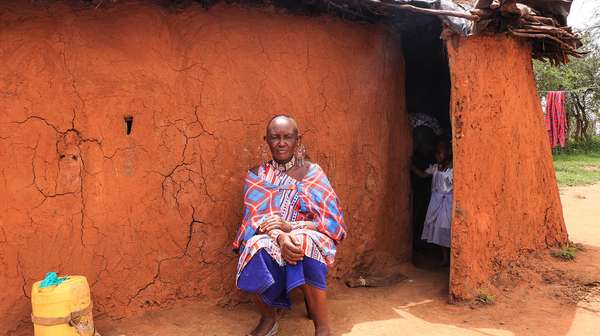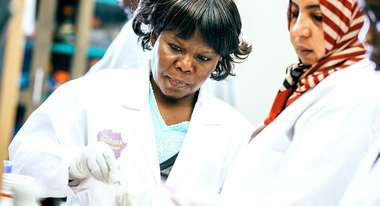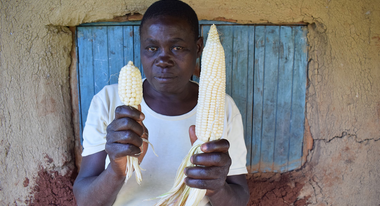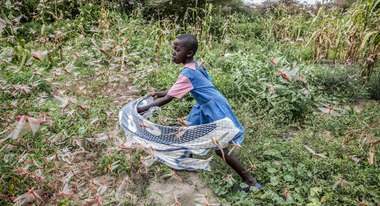Kenya is well-known for its diverse wildlife and savanna landscapes, but people are increasingly suffer from the effects of climate change.
Supporting young people and women in dairy production
In Kenya, women and young people are learning how to better market their dairy products – and thus secure food for their families.

In Kenya, more than a third of the population lives in extreme poverty. There is high unemployment, which affects young people the most. Agriculture is one of the most important sectors of the economy here, contributing more than 30 percent to the gross domestic product. However, this occupational field has lost its reputation, and young people in particular do not see any future prospects in it. Understandably so, because farmers are facing ever greater challenges due to extreme weather events. Farming families usually work small fields that are affected by drought. They lack access to modern technologies, and there is growing pressure on scarce resources such as land and water. Rural communities in particular are affected by food insecurity and chronic malnutrition.
Better market access for dairy farmers
In western Kenya, a large proportion of smallholders are involved in dairy farming. Around 70 percent of milk is produced by small farms using traditional methods. High production costs are offset by low productivity and low incomes. Welthungerhilfe (WHH) is therefore supporting more than 2,500 dairy farmers to increase the quality and quantity of their production and to gain better market access through cooperatives. Training courses provide practical knowledge as well as marketing and business management skills. A particular focus is on introducing women and young people to this professional activity and earning opportunity, qualifying them and thus enriching the nutritional situation in the region at the same time.
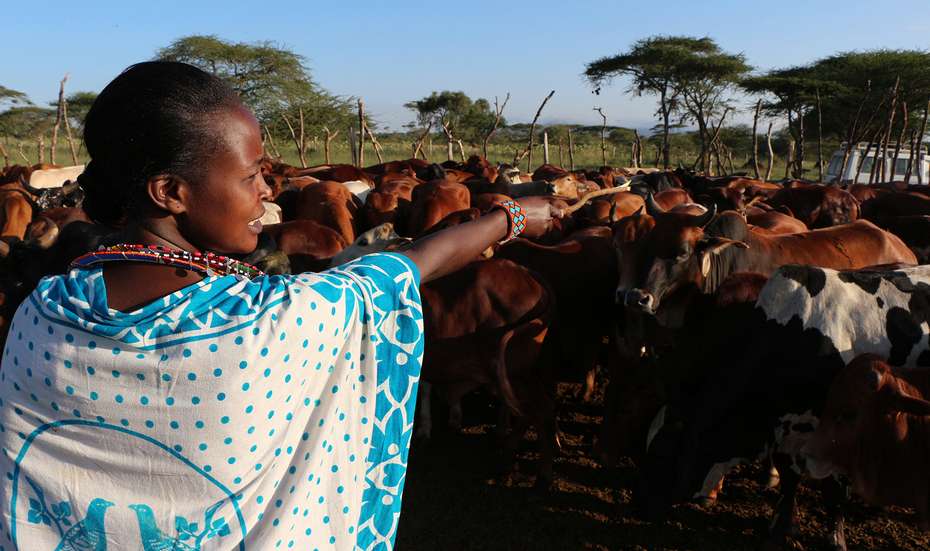
Joining forces as a cooperative ensures safety
The project in western Kenya offers women and young people in particular something they would otherwise hardly get: Knowledge, participation in progress and opportunities to earn a living. But it also opens up new prospects for others involved in milk production. Further training, support in processing the milk and lucrative marketing channels make their small farms more profitable. In addition to more productive breeds of dairy cattle, they can also purchase equipment such as churns, refrigerators or special devices for testing milk quality. They also now have enough income for family expenses such as their children's school fees. The marketing concept as a cooperative makes a decisive contribution to this, and the group also ensures reliable mutual support. Storage facilities for animal feed and more effective use of rain for grazing and watering make life easier during long dry periods. This gives the people of Vihiga security and hope.
Welthungerhilfe is implementing the milk project together with the Vihiga Dairy Farmers Cooperative. The organization, founded in 1989, works with dairy farmers in all five sub-counties of Vihiga. Welthungerhilfe has been supporting local partner organizations in Kenya for many years. The project areas are mainly located in the regions of Kajiado, Makueni, Kitui, Tana River, Marsabit and Turkana, which are frequently affected by drought. In 2015, Welthungerhilfe expanded its work to Siaya Kakamega, Bungoma and Vihiga counties.
This is how Welthungerhilfe helps dairy farmers in Kenya:
- We train 100 smallholder dairy farming groups in improved animal husbandry, breeding and animal health.
- We support farmers in establishing credit and village savings groups. This is a first step towards facilitating access to finance.
- We train women and young people in milk processing, fodder production and agricultural entrepreneurship.
- A mentoring program provides important background knowledge and skills on agricultural value chains, especially for the dairy sector.
- 25 leading women farmers from several districts in Vihiga County are supported in setting up their dairy farms in such a way that they can take over the practical training of women farmers in modern dairy farming.




